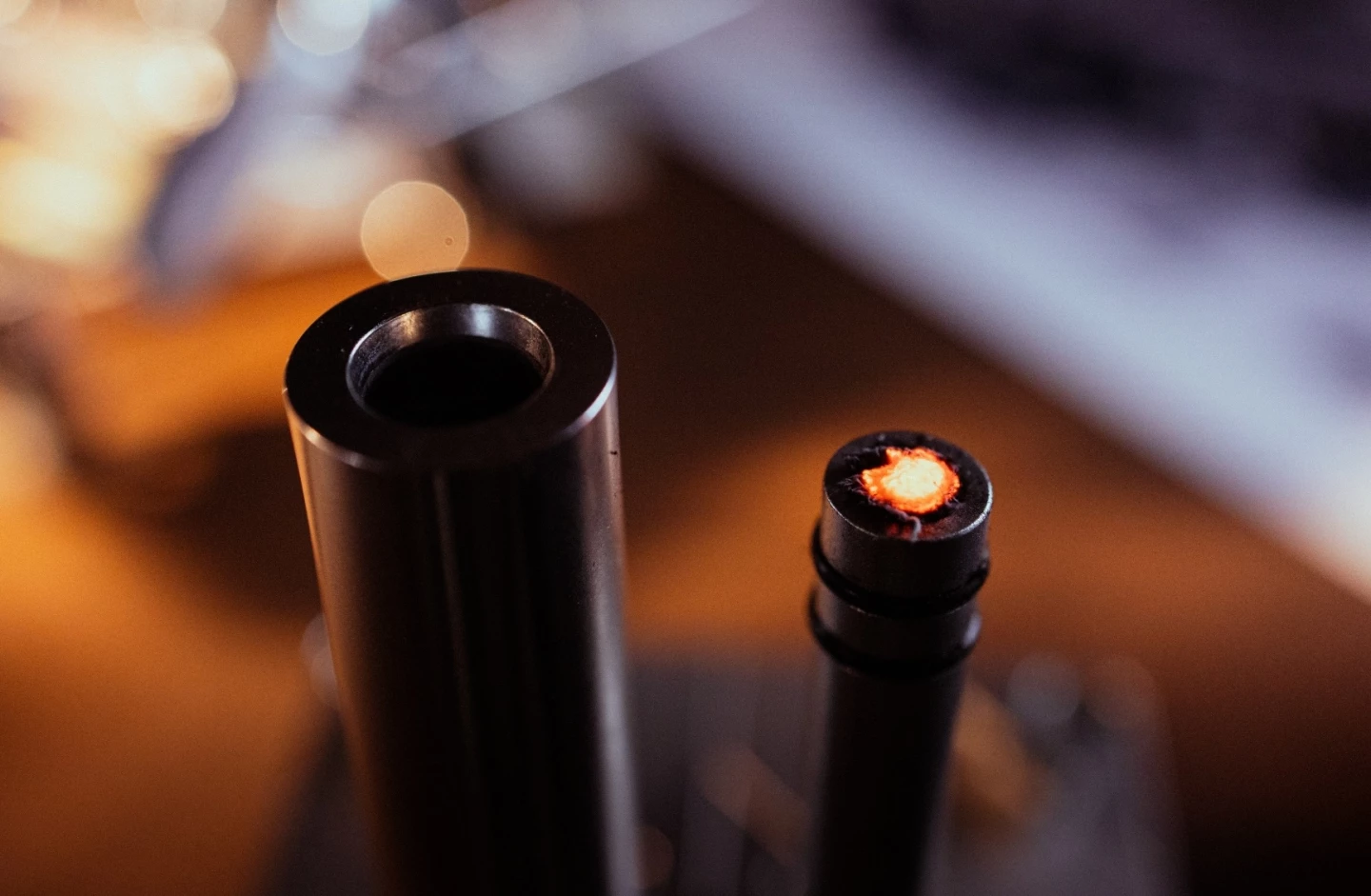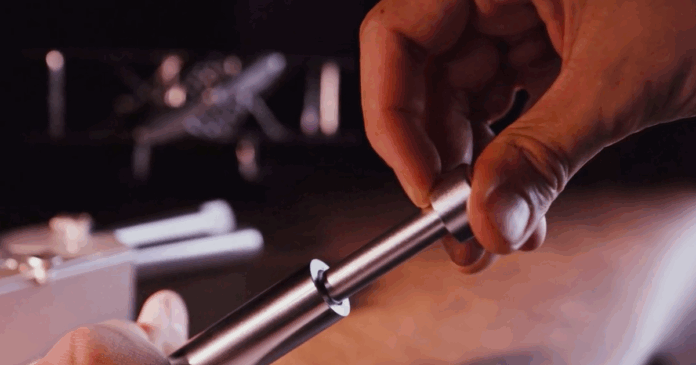More an ancient tool than a groundbreaking gadget, the fire piston relies on basic chemistry to ignite a campfire with the simple pump of a hand. The new Aviator’s Ember from Aerohart applies aerospace-grade materials to the age-old design, providing powerful, weather-ready fire-starting performance that carries lightly in a pack or pocket. Like an actual engine piston, it compresses air to initiate fast, furious combustion.
Aerohart is a small, niche Boston company that weaves aeronautical inspiration into its lineup of everyday tools and gear. In the case of the Aviator’s Ember, it’s not merely the anodized 6061 aerospace-grade aluminum that ties into the great machines of the sky – the company uses the entire concept of a fire piston as an homage to the radial diesel engines of vintage aircraft design.
Truth be told, the Aviator’s Ember is a functional ode to the diesel engine in general, which relies on the same form of compression ignition as the ancient fire piston itself, albeit in a much more juiced-up formulation that’s able to power up massive vehicles as opposed to simply lighting a tiny piece of tinder. As some tell the story, Rudolf Diesel was inspired by a fire piston-based cigarette lighter in developing the compression-ignition-fired engine that bears his name.
So we suppose you could say the Aviator’s Ember is a fire piston inspired by an engine itself inspired by the fire piston. Full circle.
Aerohart
Unlike gasoline internal combustion engines that use spark plugs to ignite the compressed air and fuel mixture in the combustion chamber of each cylinder, diesel engines operate without an external spark. Instead, they rely solely on the compression of air to ignite the fuel. The rapid air compression in the chamber superheats it to the point that the injected diesel fuel ignites on contact. The engine’s cylinder set repeats the process continuously to create the mechanical energy powering the propeller or driveshaft.
Centuries before Rudolf Diesel created his engine, ancient peoples of Southeast Asia used the same basic principle in creating the first fire piston. The device uses a much simpler version of compression ignition, relying on a single standalone piston cylinder and a small piece of solid tinder.
As Aerohart explains of its own device, the user simply puts the tinder – char cloth seems to be the most recommended – inside the cavity at the tip of the removable piston rod, reinstalls the piston back into the cylinder, then firmly and rapidly depresses it. The heat of the fast-compressed air in the cylinder will light the tinder and provide a smoldering ember that can then be placed into a tinder bundle to ignite a full fire.

Aerohart
Beyond being an impressive way of pulling (okay, pushing) fire out of literal thin air, fire pistons are designed to be a simple, failsafe piece of kit that good for use as an emergency backup. There’s no fuel to fill, and the piston is less susceptible to rain/moisture than alternatives like a pack of matches. And if you aren’t carrying your own tinder, you can collect tinder like birch bark shavings or tinder fungus.
Aerohart is still finalizing its design but expects the Aviator’s Ember to measure just over 4 in (105 mm) long, with an 11/16-in (1.7-cm) diameter and 2.8-oz (78-g) weight. Not bad at all, but we’d be inclined to stick with something even smaller and lighter, like a ferro rod, for ultralight backcountry trips. But for car camping and trips that don’t demand shedding every gram possible, the Aviator’s Ember is a very sleek, packable tool sure to impress any fellow adventurers not familiar with fire pistons. And how often do you get to make anything out of literal air?

Aerohart
Aerohart is running a Kickstarter campaign to get the Aviator’s Ember out of the prototype stage and into backers’ hands. So far, it seems the crowd is pretty enamored with the idea – the campaign is up to over US$60K on a $250 (no K) goal and has flown past all of Aerohart’s stretch goals. The Aviator’s Ember is available at an early bird pledge level of $45, and deliveries will begin as early as next month, if everything goes smoothly.
Source: Aerohart


